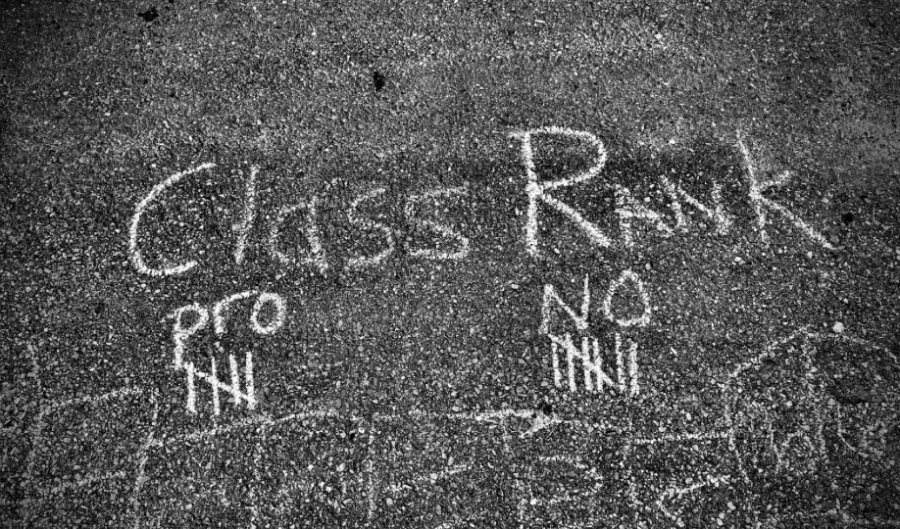Portsmouth High School Should Eliminate Class Rank
What if we could go to a school where students were celebrated for their academic achievements without the stress and toxic competition of class rank?
Every year, as the school year ends, the top students of the class rank are announced in the graduation ceremony and the local newspaper. Class rank, based on students’ weighted GPA, may seem like a good way to celebrate student achievement, but the competitive nature of rank can diminish students’ high school experience by creating unnecessary stress and dissuading students from taking classes they are interested in.
Class rank pits students against each other creating a competitive toxic learning environment for students. Every student has likely heard the “what did you get” when scores are released for a certain test or class. We are told not to do this, that “it’s not a competition,” and we should only worry about our personal grades, but this is a hypocritical expectation when at the end of the semester we are given our exact rank compared to the rest of our class.
The sense of competition within the class and students can add another layer of unnecessary stress about something completely out of their control. As Principal Stephen Chinosi pointed out in an interview, every student’s high school experience is different, with unique challenges and strengths. The class rank only quantifies a very specific type of success in high school, and doesn’t take into account the many differences between students.
Furthermore, according to a survey conducted by the Guidance Department of PHS earlier in the 2022-2023 school year, 50% of students said they take classes based on the level of the class instead of their interest in the class. These students are more concerned about taking classes that will help their GPA and rank than exploring their passions in high school. In this way, the perceived pressure from class rank impedes many students’ high school experience.
Some people may believe that having a class rank is important for the college application process, but this is not the case. According to data from U.S. News, only 37% of the 1,400 ranked colleges from their survey consider class rank “important” or “very important”. Every school is different, so the class rank of one student is extremely difficult to compare to a student attending a different high school. What’s more, many colleges use a holistic review of students, according to PHS college counselor, Brittany Lind. This means colleges want to see all aspects of their applicants. They are more concerned about students challenging themselves, working hard to get good grades, and exploring their interests in leadership roles.
Others support class rank because they believe it can motivate students to work harder. For some students, class rank definitely achieves this, but not in the healthiest way. There are other alternatives such as grouping students in percentages or the Laude system. These alternatives celebrate students for their achievement but do not pit students against each other. For example, in the Laude System, high achieving students are broken up into the groups: cum laude, magna cum laude and summa cum laude. To be in these categories students must have a certain GPA or higher, depending on the school. This system celebrates more students and eliminates the competitive nature of ranking.
Only about 60% of high schools still use class rank, according to PrepScholar, resorting to the other options that are more beneficial to students.
It is important to acknowledge the hard work that students have put in throughout high school, but Portsmouth High School should consider other options.






Kirsten Hunter • Jun 2, 2023 at 7:07 pm
I really appreciate this article, and couldnt agree more!